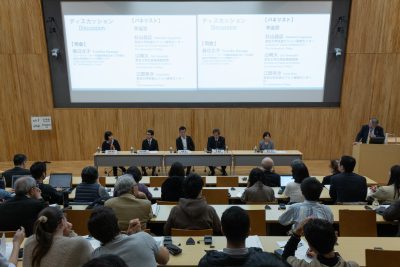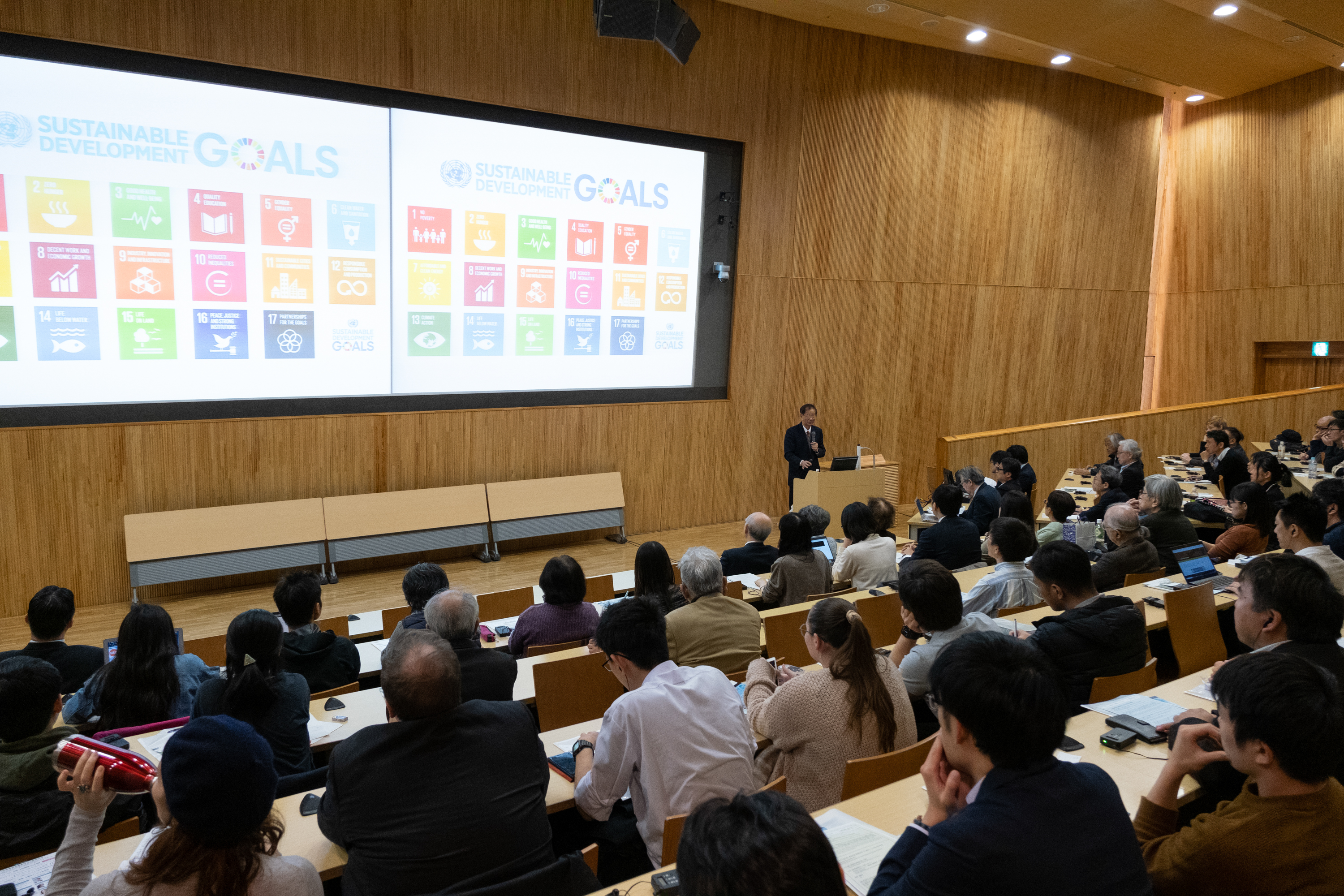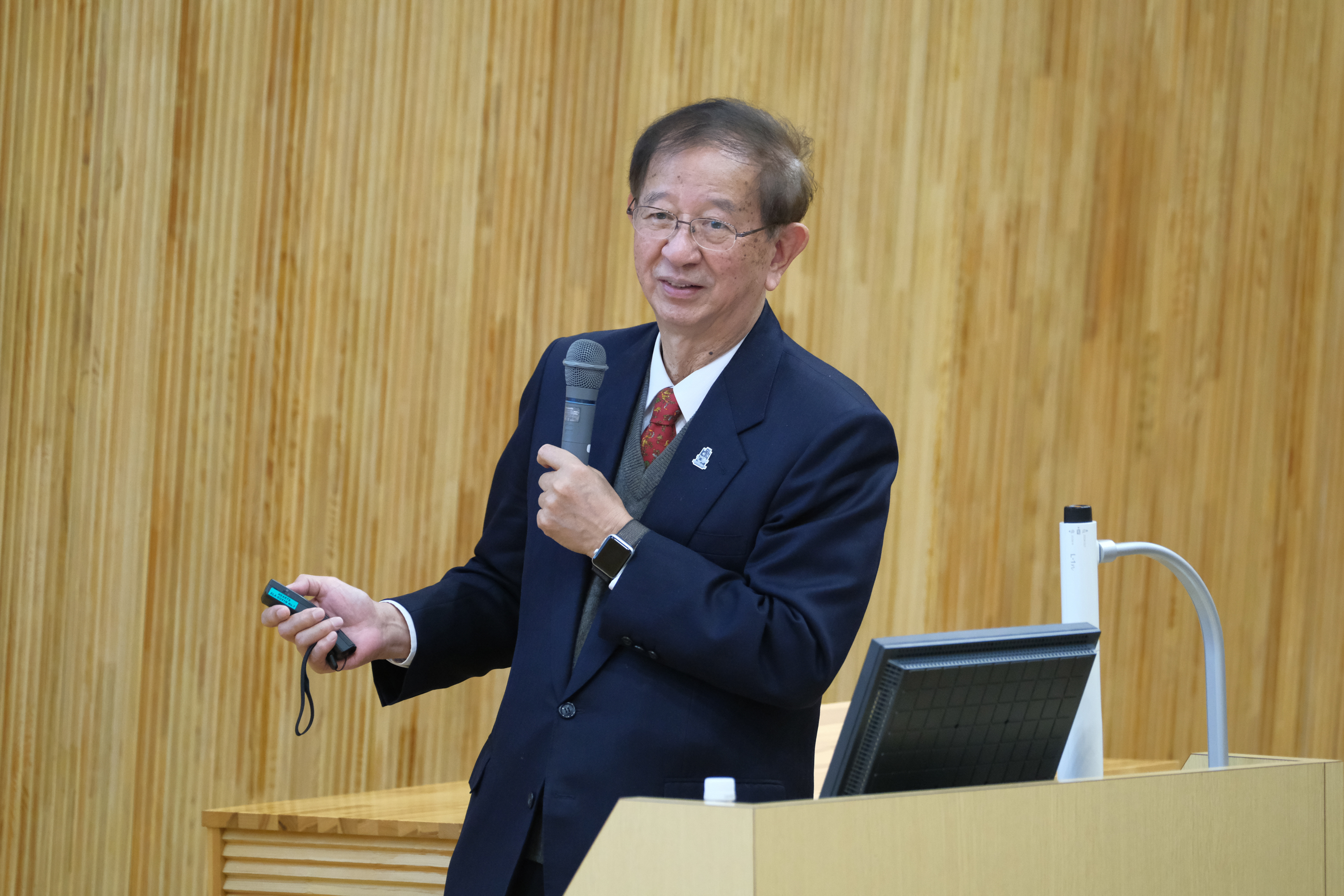Tokyo College Event“Challenges of Science to Combat the Global Climate Change” by Prof. Yuan Tseh Lee
On November 20, 2019, Professor Yuan Tseh Lee gave a lecture on “Challenges of Science to Combat the Global Climate Change.”
Professor Lee pointed out that climate change is a global problem that cannot be solved with an approach based on national action, and introduced the history of the International Council for Science (known as ICSU after its former name: the International Council of Scientific Unions), which was formed in 1931.
ICSU’s mission is to strengthen international science and international policy for the benefit of society, to which end it has established partnerships with the UN and UNESCO, and it works to actively engage with society. It launched the Future Earth initiative in 2012, as a global platform to connect society and science. The objectives for Future Earth are: (1) to work on a shift towards a sustainable earth; (2) to enable the dissemination of the findings of research through collaborative design and research; (3) to make the best use of regions and nations; and (4) to find solutions to problems. Professor Lee stressed the role of Asia, and of Japan in particular, in the effectiveness of the Future Earth initiative. He also referred to the UN’s 17 Sustainable Development Goals (SDGs) announced in 2015, which include global warming and climate change. Professor Lee argued that in order to solve the problem of global warming, which is a global reality, we must take a step back from our overdeveloped societies and research how to store and convert solar energy.

Panel Discussion
After the lecture, Professor Fumiko Kasuga (Future Earth Global Hub Director, Japan; Institute for Future Initiatives, the University of Tokyo) moderated a panel discussion between Professor Yuan Tseh Lee, Associate Professor Masahiro Sugiyama (Institute for Future Initiatives, the University of Tokyo), Associate Professor Dai Yamazaki (Institute of Industrial Science, the University of Tokyo), and Project Assistant Professor Arisa Ema (Institute for Future Initiatives, the University of Tokyo). The discussion covered topics such as climate change, sustainable development, and the relationship between AI and environmental issues. The Q&A session also featured questions about the role of citizens, in terms of how everybody can contribute to sustainable development.
| Date(s) | Wednesday, 20 November 2019, 5:00-6:30 pm (Doors open: 4:30 pm) |
|---|---|
| Venue |
Fukutake Learning Theater, The University of Tokyo (B2F., Fukutake Hall, Hongo Campus) |
| Registration | Pre-registration required (160 seats - First come, first served) |
| Language | English (English-Japanese simultaneous translation available) |
| Abstract |
Future Earth, first announced in Rio+20 in 2012, is a joint program proposed to incorporate existing international programs such as the IGBP, DIVERSITAS and IHDP, and to expand its activities to tackle global issues. The story behind the scene in establishing Future Earth was full of insights and the will of the world’s scientists towards global issues as well as for the future of global society, and is still valuable in this age of SDGs. Professor Yuan T. Lee, the president of ICSU at that time, will tell us the idea and philosophy of ICSU on Future Earth and about the prospect of the role of science for human wellbeing in the future. |
| Organized by | Future Earth Global Hub Japan Institute for Future Initiatives (IFI), The University of Tokyo Tokyo College, The University of Tokyo |
| Contact | tcevent@graffiti97.co.jp |
















